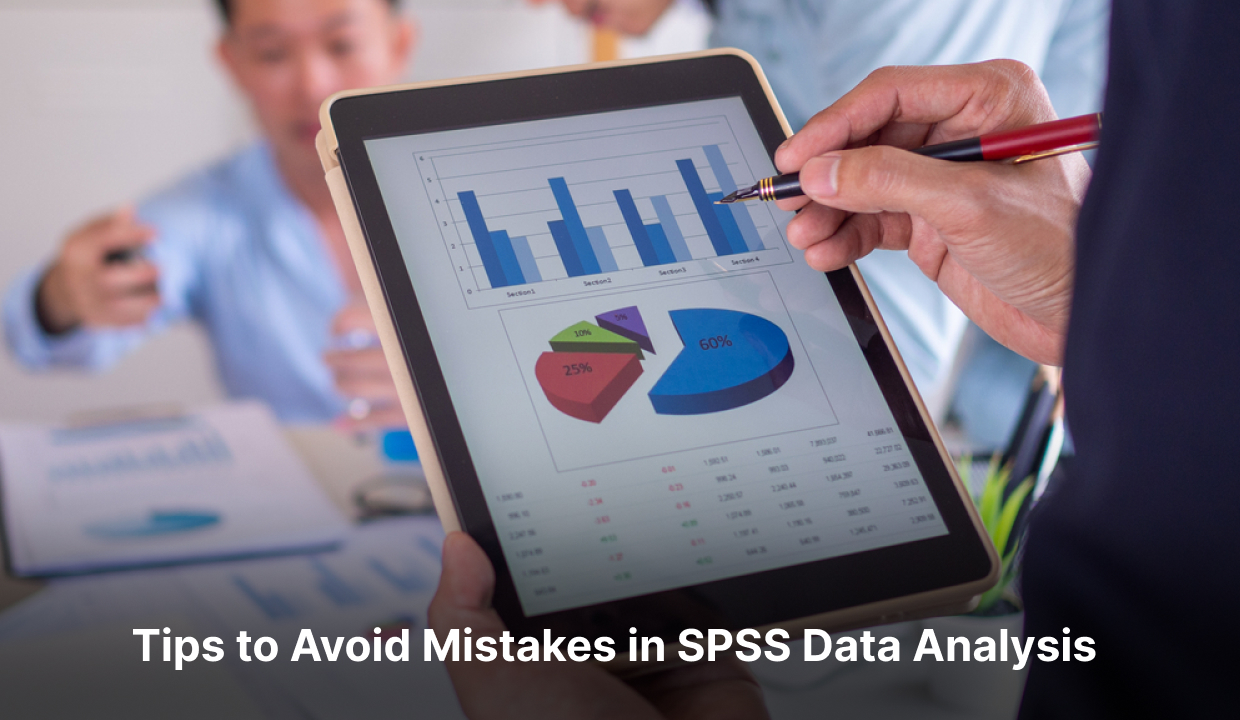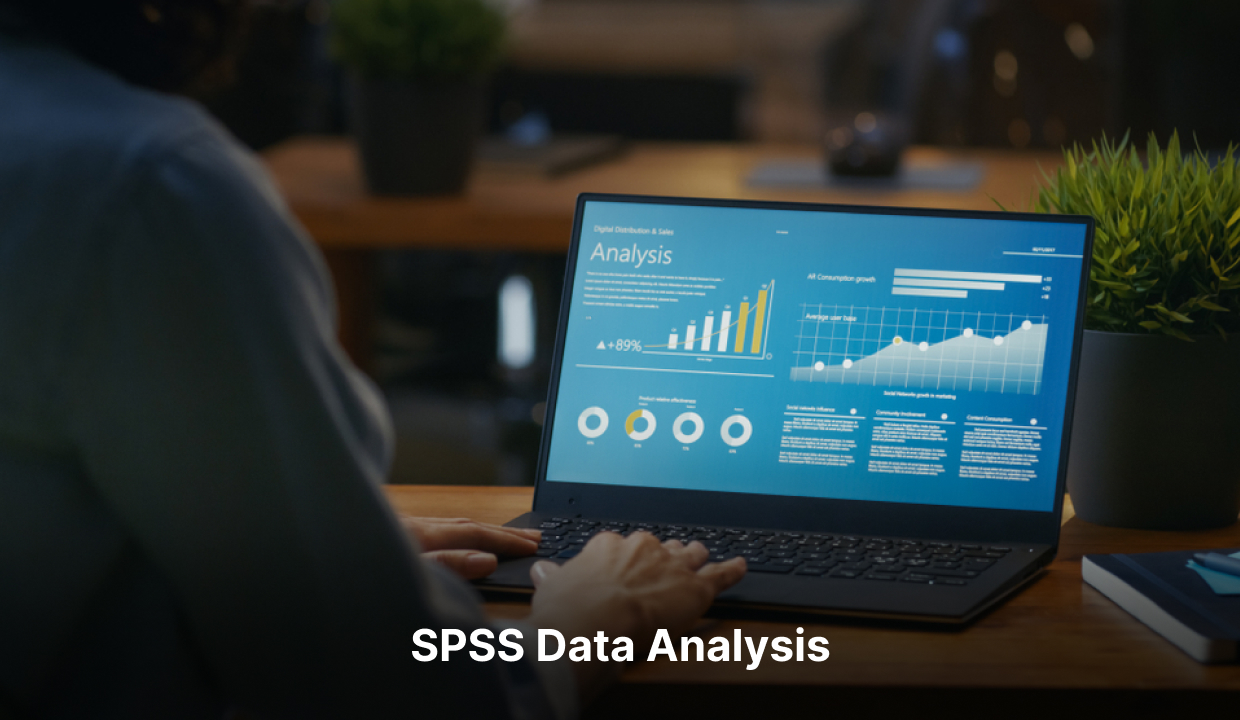-
(+44) 7842798340
Call us for enquiry -
Connect On Whatsapp (+44) 7842798340
Uninterrupted Access 24x7, 100% Confidential. - Connect Now

The stage of data analysis plays a crucial role in research and makes SPSS help mandatory for students and researchers. Analysing your data enables you to organise and structure your data findings to get meaningful insights before making any critical decision. Following the cleaning process, the data is placed in analysis tools to identify patterns and formulate analyses for inferences and conclusions. To perform the process of data analysis one needs to have specific points of knowledge such as what type of data analysis should be used, how to execute a particular data analysis process, which statistical tool will be beneficial to use, and much more. This process of data analysis is so significant for your study that if not conducted accurately, it can destroy all of your efforts. In this blog post, we are going to share some tips with you to avoid mistakes while performing data analysis. Let’s read the blog further.
You should design your research questions in such a manner that they are measurable, brief, straightforward, and able to get possible and potential solutions.
This step actually works by following two sub-steps: 1) What to measure and 2) How to measure. 1) When the question comes, what do you need to measure, then you will have to determine the type of data you will use to answer your research questions. After collecting the required data you will have to find answers to some secondary questions. Whatever data you have collected till now will be converted into some useful information. Remember that when you are collecting the data, you will have to choose the apt data so that you will be aware of its analysis procedure at a later stage. 2) You choose your measurement methodologies based on the research you are conducting. If you collect quantitative data, you will measure variables and verify existing theories/hypotheses/question them. New hypotheses are often derived based on data collected, which forms the basis for new research.
The next tip is for data collection methods. You need to focus on the fact that whatever information you are collecting, should be relevant to your research questions. Decide priorly which data collection method you are going to use: questionnaire method, survey method, interview method, etc. Always gather information which is in a simple and organised form. After completing the data collection method, you should filter the necessary and accurate information.
In the process of data scrubbing, the collected information is cleansed, that is, all the inappropriate and incorrect information is removed. Inappropriate information may include some duplicate information, the information could be incomplete, or the data could be redundant. Through the step of data scrubbing, you can eliminate all of your dirty and irrelevant data.
After collecting and cleaning the data, now you will have to analyse your data. For this purpose, you can use different methods and tools. Methods such as descriptive statistics, inferential statistics, exploratory data analysis methods, and many others. You can choose different tools also such as STATA, R, SAS, SPSS data analysis, etc.
After analysing your data, interpret it and decipher it. Interpret and find if it helps you solve any of your research questions. Check if the results and outcomes are limiting and inconclusive. A complete research project is one that addresses all your research questions using accurate data collected.

The process of analysing data is very rigorous, exhaustive, and in-depth. Every researcher uses a different approach according to their study. It is possible for some people to use software for analysing data as well as organising and managing it, while others may use it for managing and organising data only. Whatever the case is with you, you should avoid those mistakes which can ruin your data analysis process as well as your study. To serve the purpose, either follow the tips we have shared above or take help from SPSS tutors. Good luck!